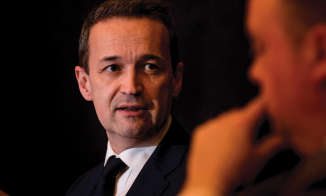Continue reading “Disputes Yearbook 2018: Ready for its close up”
Disputes Yearbook 2018: Ready for its close up
The disputes funding debate: The value of everything
Craig Arnott, Burford Capital: Litigation finance used to be perceived as a last-ditch resort for impecunious clients. That has transformed, largely because of cost pressure. It is just at the start of the change, especially on the corporate side and what possibilities there are for outsourcing. It seems a little crude, but it is an outsourcing alternative for corporates that involves financing in a way that would be thought of as outsourcing before, but is a way in which they can take books of business off their balance sheet.
Tim Brown, RPC: Several years ago we went to a bank and spoke to somebody fairly high up about the possibility of them instructing RPC to act for them under 100% CFAs [conditional fee agreements]. The offer was for them to select some cases, give them to us, and if we considered they had a good chance of success then we would do them effectively at no cost, which had the benefit of removing the cost risk from the balance sheet. The lawyer there was very interested but he came back about a month later and said the necessary people were interested but not at the moment and we asked why. Continue reading “The disputes funding debate: The value of everything”
Boutiques: Highly evolved
With the disputes market evolving and clients becoming more discerning, it has been a phenomenal ten years for boutique law firms focused on litigation. The pressure on generalist, mid-market dispute teams has played towards this dynamic, leaving true contentious specialists increasingly going head-to-head with the traditional London elite.
A glance at the financial results of some of the main litigation specialists – Stewarts, Signature Litigation and Quinn Emanuel Urquhart & Sullivan – shows dramatic increases in revenue amid a string of major cases. Continue reading “Boutiques: Highly evolved”
The Bar Elite: Silk and steel
Despite Brexit, costs pressures and the loss of financial crisis work, reports of the commercial Bar’s decline are overblown. We identify the sets and the silks redefining the modern Bar
Everyone in the global business community seems to know that many of Britain’s brightest lawyers practise at the commercial Bar, helping to maintain London’s position as a world leader in litigation. Over the past decade, nearly 70% of cases in London’s commercial Court have been brought by overseas clients: Russia, Kazakhstan, Switzerland and the US routinely originate the most litigants. Continue reading “The Bar Elite: Silk and steel”
The Silk Round: One fine day
Legal Business writes many high-minded pieces focused on the finer analytical points of the legal industry. This is not one of those pieces.
In an intensively people-driven business like the law, there cannot be many more resonant and personal experiences than becoming a Queen’s Counsel (QC). Firstly, there is the trial of the arduous application process and the agonising wait to find if you have secured the favour of peers and the selection panel. Continue reading “The Silk Round: One fine day”
The International Arbitration Summit: Trusting the cowboys
I am going to take a narrow view of a narrow subject: less of a keynote speech, more of a keyhole speech. Indeed, it is through a keyhole that I will ask you to join me in a voyeuristic peer into the room of what I call broken arbitrations, the room into which I have stuffed myriad examples of how the process of arbitration can too easily become corrupted.
And ‘keyhole’ is apt, in that privacy and confidentiality – and I hope we understand that they are very different things – prevent the door to arbitration from ever fully opening. It is merely through a keyhole that we form our impressions and understandings of what happens in actual cases. Continue reading “The International Arbitration Summit: Trusting the cowboys”
International Arbitration Insight: Bigger, longer, more complicated
‘Arbitration has gone from being the exotic bird of dispute resolution to become almost the norm,’ argues Constantine Partasides of Three Crowns (3C).
The appearance of boutiques such as 3C and Hanotiau & van den Berg is itself a sign of arbitration’s entry into the mainstream. It is tempting to consider parallels with the US-based litigation firms that emerged in the late 1980s and ’90s, when Quinn Emanuel Urquhart & Sullivan and Boies Schiller Flexner broke away from the full-service model to focus on disputes work. Continue reading “International Arbitration Insight: Bigger, longer, more complicated”
Perspectives: Stephen Parkinson, Kingsley Napley
I didn’t intend to become a lawyer. I’m the first of my family; we’ve been teachers and priests. My brother got a place at Oxford to study law. I got unexpectedly good A-Levels – I was meant to be going to Thames Polytechnic to read humanities. Sibling rivalry.
Criminal law was one subject I was good at, at uni. Wasn’t good at much! It’s about people’s behaviour – why they do the unfortunate things they do. Gets me out of bed. Continue reading “Perspectives: Stephen Parkinson, Kingsley Napley”
Perspectives: Clive Zietman, Stewarts
I got into law almost by default. I didn’t even like it when I started with Herbert Smith where I was doing non-contentious stuff, but when I did my final seat in litigation I decided this was for me. I’m a games person: I like sport, I like Scrabble, I like fighting. It was only at that point when I decided I wanted to be a lawyer.
It was always going to be litigation. If you look at my profile on our website it says: ‘Clive’s hobby is litigation.’ It’s absolutely true. If I go on holiday and have a bad holiday, I sue the holiday company. Which is, in fact, almost inevitable. We were building a house down in Cornwall and we were entering into a building contract that my wife was helping to draft. I said: ‘Why are you calling in the builders? They’re the defendants!’ Continue reading “Perspectives: Clive Zietman, Stewarts”















